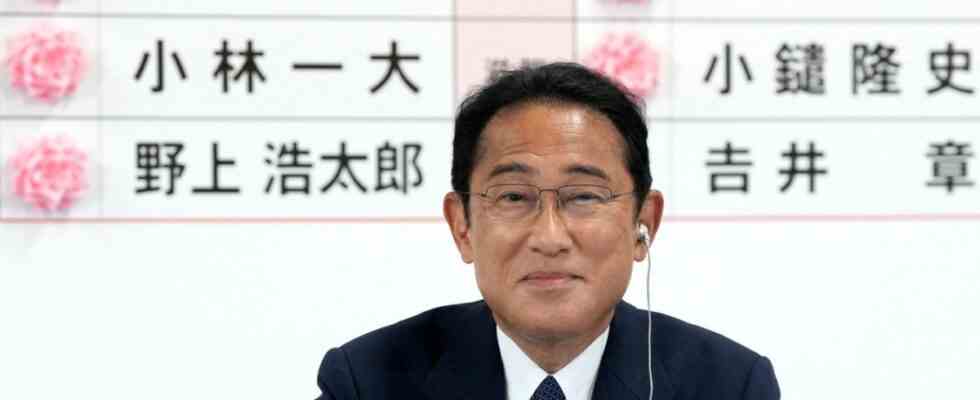It is no surprise that Japan’s ruling party, the LDP, won Sunday’s upper house election comfortably. Likewise, one had already suspected that the LDP with its smaller coalition partner Komeito and the two right-wing opposition parties Nippon Ishin no Kai and DPP would create a two-thirds majority. But only when the result was actually determined on Monday night (local time) did the political elite in Tokyo’s Nagatacho parliamentary district feel that they were heading for a historic turning point. 77 years after Imperial Japan’s surrender as a World War II aggressor, it is increasingly likely that post-war Japan would once again be allowed to use warfare to respond to military conflicts.
Two days after the fatal assassination attempt on ex-Prime Minister Shinzō Abe, voters put the right-wing camp in a position to push ahead with the reform of Article 9 of the pacifist constitution. According to the first results, the right-wing parties will have more than 170 seats in the upper house in the future – four more than they would have needed for their project.
Prime Minister Fumio Kishida understood the importance of the result when he said: “We will continue to deepen the parliamentary debate on the Constitution so that a concrete proposal for amendment can be worked out.”
Apparently, the election was only for half of the 248 seats in the weaker “House of Councilors” of the national two-chamber parliament. In fact, it was about much more. The LDP, Komeito, Ishin and DPP had already won a two-thirds majority in the lower house elections in October. But in order to be able to obtain a referendum on the constitutional question, they needed one in the upper house as well.
Japan has been committed to non-violence for 77 years – but there are threats
Changing the pacifist constitution is a long-cherished wish of right-wing circles in Japan. It strikes their national pride that Article 9 stipulates Japan’s non-violence in all situations. Changing that was always one of the most important goals for Abe, the Prime Minister from 2012 to 2020.
Russia’s attack on Ukraine has changed the situation. Fears of the authoritarian neighbors Russia, China and North Korea are increasing. During the election campaign, the LDP therefore campaigned for a new security policy, according to which Japan should be able to retaliate against attacks with its own missiles in the future. The current constitution would forbid that – that’s why the LDP and the other right-wingers want the reform. Recently, even the actually pacifist Komeito is in favor of it.
The LDP won at least 63 seats. It was the best election result since 2013 and a clear vote of confidence in Kishida. He has been Prime Minister since October 2021. Kishida has clearly positioned Japan on the side of the West in Russia’s war. In the moment of victory he thought of Abe and the attack. “The elections, which are the basis of democracy, have been challenged by violence,” Kishida said, “and it is of great importance that they took place.”
Others, on the other hand, were already thinking ahead. Ichiro Matsui, whose Nippon Ishin no Kai also posted gains, congratulated the LDP on a “stunning victory”. Then he thought of the constitutional amendment. He said: “The LDP must set a timetable for this that would have pleased the late former Prime Minister Abe.”

